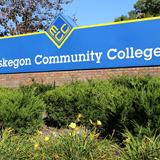- West Shore Community College, through visionary and principled leadership and team empowerment, pursues excellence by delivering high-quality, affordable educational services with student learning as its highest.
School Highlights
West Shore Community College serves 1,278 students (21% of students are full-time).
The college's student-teacher ratio of 13:1 is lower than the state community college average of 19:1.
Minority enrollment is 24% of the student body (majority Hispanic), which is less than the state average of 40%.
Quick Facts (2025-26)
- Enrollment: 1,278 students
- In-state tuition: $4,126
- Out-state tuition: $5,326
- Student-teacher ratio: 13:1
- Minority enrollment: 24%
- Source: Integrated Postsecondary Education Data System (IPEDS)
Top Rankings
West Shore Community College ranks among the top 20% of public schools in Michigan for:
Category
Attribute
Affordability
Debt For Students
School Overview
The teacher population of 101 teachers has stayed relatively flat over five years.
West Shore Community College
(MI) Community College Avg.
Carnegie Classification
Associate's Colleges: Mixed Transfer/Career & Technical-High Nontraditional
Baccalaureate/Associate's Colleges: Associate's Dominant
Institution Level
At least 2 but less than 4 years
At least 2 but less than 4 years
Institution Control
Public
Public
Total Faculty
101 staff
224 staff
School Calendar
Student Body
The student population of West Shore Community College has grown by 18% over five years.
The student-teacher ratio of 13:1 has increased from 10:1 over five years.
The West Shore Community College diversity score of 0.39 is less than the state average of 0.60. The school's diversity has grown by 17% over five years.
Total Enrollment
1,278 students
3,006 students
Student-Teacher Ratio
13:1
19:1
# Full-Time Students
274 students
904 students
# Part-Time Students
1,004 students
2,102 students
# Enrollment Undergraduate
127 students
219 students
# Full-Time Undergraduate Students
274 students
965 students
# Full-Time Graduate Students
n/a
4 students
# Part-Time Undergraduate Students
1,004 students
2,448 students
# Part-Time Graduate Students
n/a
4 students
Total Dormitory Capacity
n/a
188 students
% American Indian/Alaskan
1%
n/a
% Asian
1%
4%
% Hispanic
10%
7%
% Black
2%
16%
% White
76%
60%
% Hawaiian
6%
1%
% Two or more races
3%
4%
% Non Resident races
n/a
2%
% Unknown races
1%
6%
Diversity Score
0.39
0.60
College Completion Rate (Students who graduate in less than 4 years)
30%
28%
College Completion Rate (Students who graduate in 4 years or more than 4 years)
n/a
20%
Average Graduate Earnings (10 Years)
$28,200
$30,700
Tuition and Acceptance Rate
The public in-state tuition of $4,126 is less than the state average of $5,506. The in-state tuition has declined by 7% over four years.
The public out-state tuition of $5,326 is less than the state average of $7,381. The out-state tuition has declined by 13% over four years.
In-State Tuition Fees
$4,126
$5,506
Out-State Tuition Fees
$5,326
$7,381
% Students Receiving Some Financial Aid
95%
88%
Median Debt for Graduates
$7,825
$11,704
Median Debt for Dropouts
$4,727
$5,500
Acceptance Rate
n/a
100%
Source: 2024 (or latest year available) Integrated Postsecondary Education Data System (IPEDS) , School Administrators
School Notes
- West Shore Community College was established by a vote of the people in the college's district on March 6, 1967. West Shore Community College offers a comprehensive general education curricula designed to meet the needs of students desiring to transfer to senior institutions and many occupational programs are available for students desiring to pursue immediate employment. West Shore Community College is located near Ludington, Manistee, and Scottville at the intersection of North Stiles and Sugar Grove Roads in Mason County. The 360 acre campus is approximately four miles north of US 10 and four miles west of US 31. Each semester evening classes are offered at high school buildings in locations such as Bear Lake, Hart, Ludington, Manistee, Onekama, and Pentwater. At West Shore you'll get more than a degree. You'll have access to top notch learning resources, including state-of-the art computer labs, library and media resources. Even with all these great resources our greatest resource is our faculty. At West Shore Community College, student learning is our highest priority. At West Shore we encourage our students to become active members of our learning community - to enter into a partnership in which students are asked to work hard at making learning their number one priority. We have an outstanding faculty, every member of which is ready to make each student's time on the campus one of special inspiration. These outstanding teachers, and all the other members of the WSCC team, are vitally interested in our students' success. West Shore is accredited by the Higher Learning Commission of the North Central Association of Colleges and Schools. West Shore earns its accreditation by participating in the Academic Quality Improvement Project (AQIP). This new accreditation model is one that uses quality principles based on the Malcolm Baldrige Quality Criteria to judge its accreditation status.
Frequently Asked Questions
How much does West Shore Community College cost?
West Shore Community College's tuition is approximately $4,126 for In-State students and $5,326 for Out-State students.
What is West Shore Community College's ranking?
West Shore Community College ranks among the top 20% of community college in Michigan for: Least expensive tuition and Least debt for graduating students.
Recent Articles

Community College Success Rates 2025: Outcomes & Trends
Updated 2025 analysis of community college success rates, completion, transfer, costs, enrollment, and strategies that shape student outcomes.

Community Colleges in 2025: Combating Stereotypes with Impact
Updated insights on how community colleges are dispelling myths, growing enrollment, and expanding pathways in 2025.

2025 FAFSA Changes Explained for Community College Students
A comprehensive guide to 2025 FAFSA changes, what community college students must know, new eligibility rules, timelines, and tips to maximize federal aid.











